Rosemary is an evergreen semi shrub with a wood stem and fragrant evergreen needle-like leaves. Rosemary reaches a height of 20 to 80 cm. Its branches are covered with narrow, linear, curled at the ends, whitish leaves below. At the bases of rosemary's narrow leaves are clusters of flowers that are bluish or violet in color. Rosemary blooms from June to August and its fruit resemble walnuts.
Rosemary's popularity dates back to the ancient Greeks who valued it as a sacred plant. In Europe, rosemary was brought by monks, after which it was widely used in Portugal, Spain, Italy, France, Greece, England, Scandinavia and Germany.
Rosemary as a natural wild crop is found throughout the Mediterranean, the Black Sea and especially in Cyprus. In biblical times, rosemary is mentioned as growing on the hills of Lebanon. Other names by which rosemary is also known are compass weed, compass plant, polar plant and ocean dew.
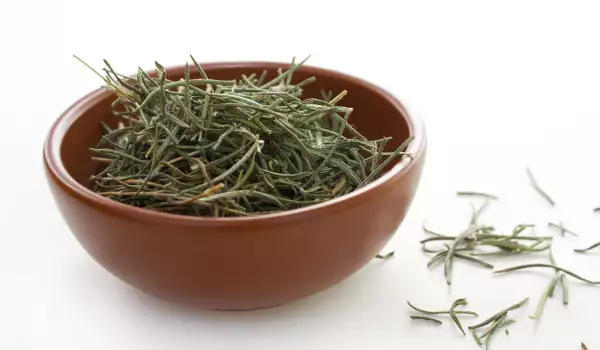
Growing Rosemary
The name rosemary comes from the Latin name rosmarinus, which means ocean dew. Nowadays rosemary can be grown in gardens and balconies. Growing it in pots requires that rosemary be trimmed so it doesn't become loose textured and less pretty. In a garden, it can grow quite large and still not lose its attractiveness.
Rosemary can be propagated from existing plants by cutting a tip of it, which is 10-15 cm long, removing a few leaves from the lower end and pricking it directly. France, Italy, Spain and Greece are currently the largest producers and suppliers of rosemary. Rosemary is a spice whose leaves are used. The chemical composition of rosemary leaves contain up to 2% essential oils, tannins, resins, etc. According to research, rosemary can be used as a preservative and as an additive for some types of drinks.
Rosemary grows best in a sunny and warm place and tolerates drier air. It is important to protect the rosemary plant from drafts. It should gradually get used to the change in temperature and light. It is recommended that rosemary is brought in for 1 - 2 weeks in somewhat shady place in the fall, before it is finally brought indoors. In spring and summer, rosemary can be left on the balcony. For winter, the optimal temperature in a closed room is 10-12°C and in summer the minimum should be 20°C, if the plant is outdoors.
The use of rosemary
It is important to know that rosemary has a strong sweet camphor aroma, reminiscent of the scent of pine. As a spice, rosemary is preferred because of its very spicy and slightly sharp taste. Rosemary is also widely used in the pharmaceutical industry, where it is used to prepare medicinal preparations, medicinal teas, tinctures, ointments, plasters. Rosemary is extremely widely used in the production of essential oils, which are also used in the cosmetic industry.
Rosemary spice is obtained from the crushed leaves of the plant. In small quantities, mainly because of its particularly strong aroma and taste, rosemary is suitable as an addition to soups, salads, meat fillings, to roasted meat, roasted poultry, mushrooms, boiled fish, red and white cabbage and to marinades. In moderate quantities, rosemary gives a special flavor to meat, chicken, spinach and pea soups.
Rosemary gives off quite a pleasant flavor to soft cheeses, potatoes, game poultry, fish, egg batter and it is also an excellent seasoning for lamb, beef goulash, mutton and tomato soup and also beef and veal. Rosemary is also suitable to put on grilled meats.
In cooking, rosemary is mainly used because of its ability to suppress the specific smell of certain types of meat, such as mutton and pork. Specialists have long known that rosemary gives meat a game meat flavor. Generally rosemary is used as well as bay leaf. It is important to know, however, that if kept in too long, rosemary can give the dish a bitter taste.

Rosemary benefits
The benefits of rosemary on the human body are numerous. Rosemary is an effective remedy against flatulence. It improves digestion and has a strong irritating effect on the skin. Rosemary essential oil is used for rubbing, strengthens nerves and dilates blood vessels.
Rosemary also has a healing effect for low blood pressure, nervous disorder, feeling of tension. Rosemary is an extremely useful remedy for conditions of general exhaustion and sexual weakness. It helps to increase the secretion of gastric juice and in particular has a beneficial effect on the overall activity of the stomach and intestines.
It is believed that the aroma of rosemary can make you sick. It also has a beneficial effect on long-term memory and even supports the activities of the brain that are related to calculation.
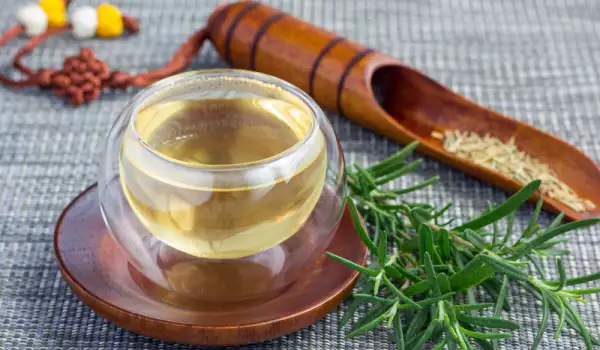
Rosemary tea is extremely beneficial for the circulatory system as it increases blood flow in the body. Certain antioxidants in rosemary protect against dementia and Alzheimer's disease.
Rosemary can help improve liver function. The beneficial properties of rosemary in relation to unpleasant migraines have long been known.
Folk medicine with rosemary
In folk medicine, rosemary is used for disorders of the menstrual cycle and for improving appetite. It is also used for cardiac neurosis, cough and asthma and in the form of patches - for rheumatism. Take it in the form of an extract - pour 1 tsp. dried rosemary with 200 ml of boiling water and infuse for about 4 hours. Strain and drink morning and evening on an empty stomach.
It is also used as a disinfectant for skin wounds in the form of water baths. Half an hour before bathing, place a gauze bag containing 50 g of gauze with rosemary powder in the bath.
Rosemary essential oil
It turns out that rosemary oil is an excellent anti-aging agent. The medicinal and therapeutic uses of the oil are numerous. It should be noted that it is strong and very concentrated, so it should not be used in its pure form to avoid unwanted side effects.
Rosemary oil is anti-inflammatory and soothing. It is often used for massages for overworked muscles or injuries in athletes.
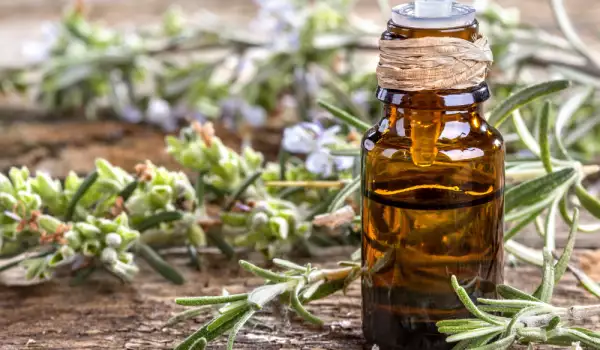
It successfully reduces inflammation caused by arthritis and hemorrhoids. It is also used to treat superficial wounds, scrapes and scratches. It kills the harmful microorganisms that would infect the wounds and thus helps them to heal faster.
Rosemary essential oil can also be added to toothpaste. It will kill the bacteria that make your breath worse and freshen up the oral cavity.
Rosemary oil can be used as a treatment for a variety of respiratory problems by gently inhaling its aroma to relieve symptoms.
Harms from rosemary
Although it has a number of health benefits, it turns out that rosemary can also be dangerous. We will look at some of the most common side effects of the aromatic herb, as well as when to be careful with its intake.
First of all, it should not be forgotten that rosemary has a very strong diuretic effect, which in some cases can lead to stomach problems and subsequent dehydration of the body.
People who have problems with the excretory system should also be careful with rosemary, because the herb causes difficulties for the kidneys to function.
It should not be consumed by pregnant women as it causes contractions, which in turn can provoke premature birth.
As already mentioned above, rosemary increases blood pressure, which makes it suitable for people with low blood pressure and extremely unsuitable for people with high blood pressure or hypertension. It is also not recommended for patients with epilepsy.
Rosemary tea has an invigorating effect and is a good alternative for morning coffee, but it should not be taken in the evening precisely because of this invigorating effect.
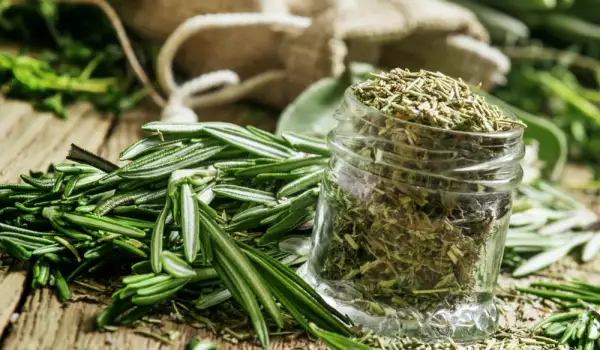
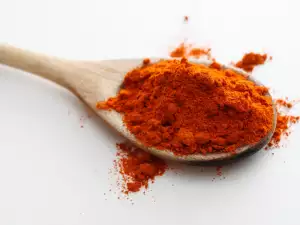


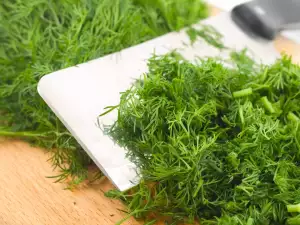
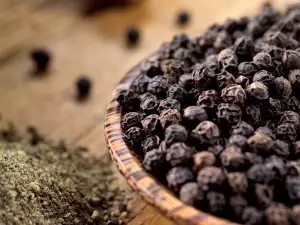

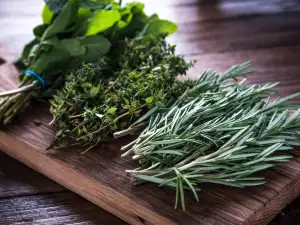

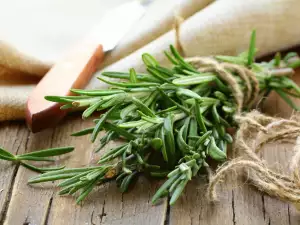
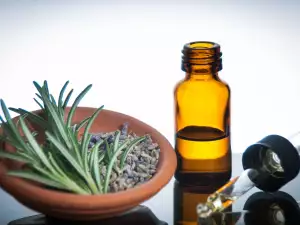

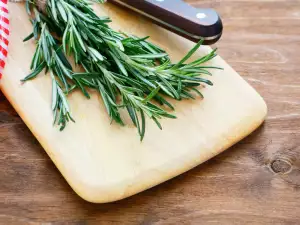






Comments